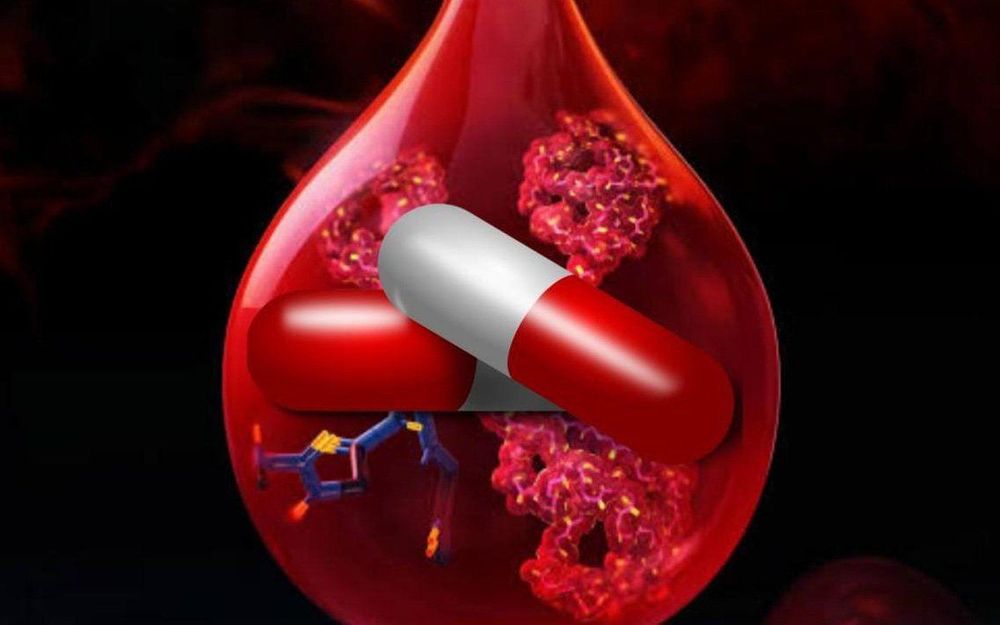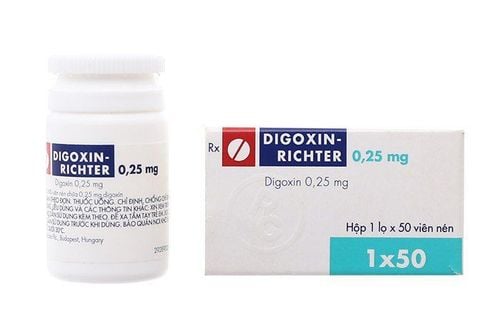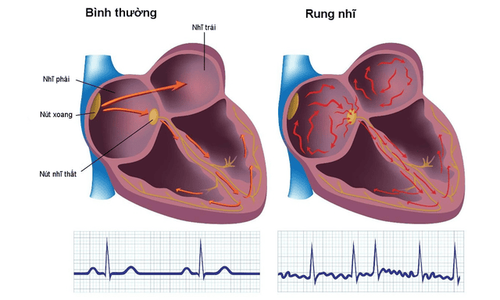This is an automatically translated article.
The article was professionally consulted with Specialist Doctor I Le Thanh An - Interventionist Cardiologist - Department of Medical Examination & Internal Medicine - Vinmec Nha Trang International General Hospital.Atrial fibrillation is a common arrhythmia. The formation of blood clots in the heart chambers in patients with atrial fibrillation increases the risk of stroke. Therefore, during the treatment of atrial fibrillation, patients need to control their heart rate and prevent thrombosis. So what are the drugs for atrial fibrillation and what side effects do they have?
1. When and why to use drugs to treat atrial fibrillation
For most patients, medication for atrial fibrillation is the best treatment for this condition. These medications work to prevent blood clots (blood clots) from forming, control your heart rate, and reduce your risk of stroke. If the patient hasn't been treated for a long time before, the doctor may use medication to treat atrial fibrillation to get their heart rate back to normal.2. Anticoagulants
Atrial fibrillation is a condition in which the patient's heart rhythm is irregular, because the two upper chambers of the heart (atria) lose their ability to contract normally, leaving only vibrations. As a result, blood collects in the atria, increasing the risk of blood clots forming. From there, these blood clots move and cause blockage of distant arteries, such as: occlusion of cerebral arteries causing cerebral infarction (stroke), blockage of blood supply to the heart, causing myocardial infarction,.... Anticoagulants prevent blood clots from forming. The mechanism of action is that this drug inhibits the body from making proteins that play a role in blood clot formation. The treating doctor will prescribe this drug to reduce the risk of stroke. Among them, Warfarin is a popular choice, besides there are some new generation anticoagulants (NOACs) such as Dabigatran, Rivaroxaban, Edoxaban and Apixaban.Side effects and risks of using anticoagulants: These drugs for atrial fibrillation are very effective in preventing stroke. But on the other hand they increase the risk of bleeding from mild to severe. If you're taking warfarin, you'll need to have regular blood tests to make sure the dose and concentration of the drug in your body is at the right level. In addition, patients also need to carefully monitor their own diet. NOACs have the advantage of not requiring frequent blood tests but are not useful if patients with atrial fibrillation have mechanical heart valves.

3. Antiplatelet drugs
Antiplatelet drugs, such as aspirin and clopidogrel, may also prevent blood clot formation in patients with atrial fibrillation. In addition, this drug can also break up an existing blood clot. However, antiplatelet drugs are not as effective as anticoagulants. But doctors may prescribe them as a treatment for atrial fibrillation if the patient has contraindications to other anticoagulants.Side effects and risks: Antiplatelet drugs may increase the risk of bleeding. If you notice blood in the stools, bleeding gums, unusual menstrual periods, fatigue or dizziness, notify your doctor immediately. Aspirin can be bought without a prescription, but patients should not take more than prescribed by their doctor.
4. Beta blockers (beta blockers)
During treatment for atrial fibrillation, your doctor may prescribe a beta-blocker to help bring your heart rate back to normal. Beta Blocker also works to treat high blood pressure by slowing down the heart if it beats too fast. Drugs in this class include atenolol, bisoprolol, carvedilol, metoprolol, nadolol, propranolol, and timolol.Side effects: Because Beta blockers slow the heart rate, it can help patients feel better overall. But they can still cause some side effects such as low blood pressure, insomnia, cold hands and feet, symptoms of shortness of breath due to asthma or erectile dysfunction in men. In addition, this drug can make users feel tired or depressed. Women who are pregnant or want to become pregnant should tell their doctor while taking beta-blockers.
5. Calcium channel blockers
Calcium channel blockers, such as diltiazem and verapamil, work to relax blood vessels and control heart rate, keeping the heart from working too hard. Cardiac muscle cells and arteries in the body use calcium ions to contract harder. Calcium channel blockers work by blocking the flow of calcium into the heart muscle cells, thereby slowing the heart rate that is too fast in patients with atrial fibrillation. This medication for atrial fibrillation can help control irregular heartbeats, lower blood pressure, and relieve chest pain.Side effects: Calcium channel blockers can cause constipation, dizziness, headache, swelling in the ankles or feet. In patients with low blood pressure or heart failure, calcium channel blockers may not be a good choice for the treatment of atrial fibrillation.
6. Digoxin
Digoxin is essentially a cardiac glycoside, which slows the heart rate of patients. Atrial fibrillation causes the heart to receive many different blood components at the same time each time it beats, which means that the amount of blood circulating throughout the body has an uneven concentration of oxygen. Digoxin improves the way atrial fibrillation patients' hearts receive more adequate blood during diastole, thereby reducing symptoms such as dizziness or lightheadedness. Besides, digoxin can increase blood circulation and improve ankle or hand edema.Digoxin side effects: Digoxin can help increase heart muscle contractions and make your heart rate more stable. But this drug for atrial fibrillation can still cause many side effects such as nausea, vomiting, fainting, and heart palpitations. Doctors may prescribe beta-blockers or calcium channel blockers to control the heart rate of patients with atrial fibrillation before prescribing digoxin. This drug can be used in combination with other drugs.

7. Antiarrhythmic drugs
After prescribing drugs to control heart rate, the doctor may prescribe some other drugs to maintain a stable heart rhythm. The human heart uses electrical signals to control its ability to contract. Antiarrhythmic, sodium channel blockers, such as flecainide, propafenone, and quinidine, slow electrical conduction in cardiac muscle cells. An antiarrhythmic drug with a potassium channel blocker mechanism, such as amiodarone, sotalol, and dofetilide, slows down the electrical signals that lead to atrial fibrillation.Side effects: Antiarrhythmic drugs do not work for all patients with atrial fibrillation and on the other hand can cause some serious side effects. They can cause a new arrhythmia or make an existing arrhythmia worse. These risks mean that doctors may prescribe this class of drugs only to treat severe atrial fibrillation or when other medications don't work. At the same time, the doctor should have a plan to closely monitor the patient during the use of this drug to treat atrial fibrillation.
8. New points in the treatment of atrial fibrillation
aScientists are working on a new anticoagulant drug that could both prevent strokes and require fewer blood tests. Among them, clotting factor Xa inhibitors, or oral thrombin, may be better at preventing blood clots or causing fewer side effects. In addition, some antithrombotic drugs may have a lower risk of bleeding. Researchers are also trying to find drugs that treat the cause of atrial fibrillation, rather than just treating the symptoms.To ensure the safety and effectiveness when using drugs to treat atrial fibrillation, patients should use the correct medication as prescribed, at the same time, have regular medical examinations, tests, and follow-up appointments as prescribed by the doctor. . At Vinmec International General Hospital, there are now a full range of tests and clinical examinations to check health status, monitor treatment effectiveness. The entire examination and testing process at Vinmec is carried out by a team of experienced and qualified medical doctors and modern medical facilities, so it can give accurate results, helping doctors advice on the best treatment.
Please dial HOTLINE for more information or register for an appointment HERE. Download MyVinmec app to make appointments faster and to manage your bookings easily.
Reference source: webmd.com














